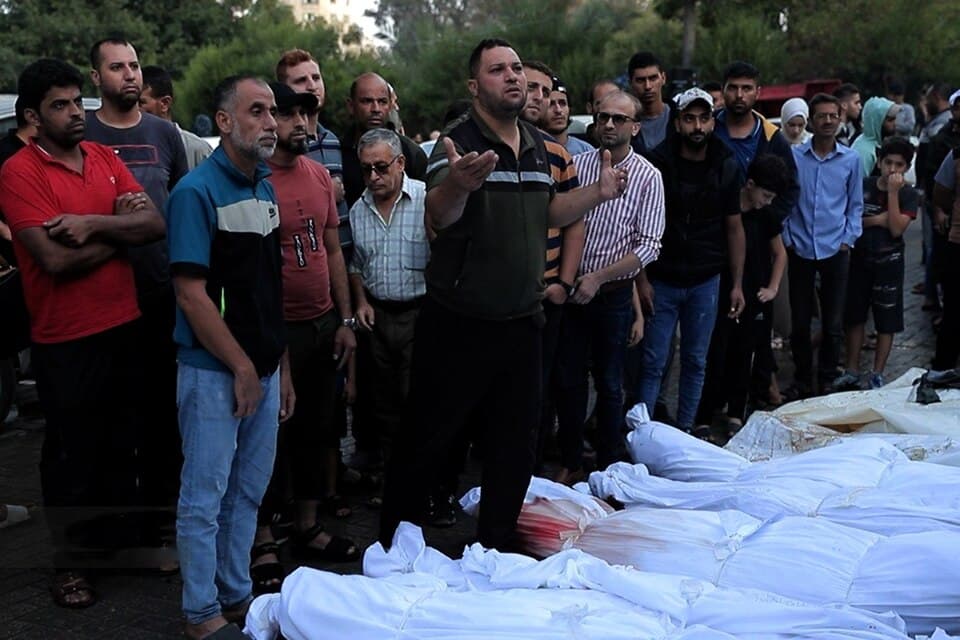Emirati Analyst Calls for Gaza to Embrace Rwandan-Style Reconciliation and Development

Dubai, UAE – A prominent Emirati political strategist and analyst, Amjad Taha, has issued a stark call for the Gaza Strip to abandon its current trajectory and instead emulate Rwanda's post-genocide path of reconciliation and economic recovery. Taha, known for his outspoken views on Middle Eastern affairs and his advocacy for normalization with Israel, asserted that Hamas's governance has trapped Gaza in a cycle of destruction, contrasting it sharply with Rwanda's remarkable resurgence from the 1994 genocide.
In a recent social media post, Taha directly addressed the situation in Gaza, stating, "The way out is not another rocket. It is a mirror. Gaza needs Rwanda’s mind and soul. It is no longer a war zone. It is a factory of death controlled by the filthiest Islamists in modern history who burn their own people to hold power." He further criticized Hamas, alleging, "Hamas Muslim Brotherhood Palestinian terrorists do not govern. They imprison. Every few years another war. Same slogans. Same martyrs. Same grief. Rockets are launched. Children are buried. Nothing truly changes. The ruins grow deeper."
Taha's commentary highlights the devastating impact of Hamas's rule on the civilian population. Since taking control in 2007, Hamas has established an authoritarian Islamist statelet, leading to multiple conflicts with Israel and a severe humanitarian crisis. Reports indicate widespread dissatisfaction among Gazans due to economic hardship, high unemployment, and the repression of dissent. Human rights organizations, including Freedom House, have noted the lack of transparency and accountability in Hamas's governance, alongside its suppression of media and political opposition. The ongoing conflict has exacerbated an already dire situation, with over 50,000 Palestinians killed and critical infrastructure, including hospitals and schools, extensively damaged or destroyed.
The analyst drew a direct parallel to Rwanda, a nation that experienced a genocide resulting in the slaughter of over 800,000 people in just 100 days. Despite this horrific past, Rwanda has achieved significant progress in reconciliation and economic development. Its approach has involved community-led justice systems like the "gacaca" courts, which processed over 1.2 million cases, focusing on truth-telling and fostering forgiveness. Economically, Rwanda has seen an average GDP growth of 8% per year over the last two decades, with notable improvements in health, education, and gender equality. Kigali, the capital, is now recognized as a clean, modern, and safe city, reflecting the nation's commitment to rebuilding.
Taha emphasized the contrasting choices, stating, "Rwanda chose something unimaginable. Not more war. Not more hate. But life. They did not erase history. They faced it. They built courts. They chose truth over vengeance. More than 120000 were tried in community hearings. Survivors faced murderers. And they forgave." He concluded his comparison with a poignant observation: "The human soul can rise from ashes but not if it clings to fire."
Amjad Taha, a British-Bahraini journalist and political analyst based in the UAE, has consistently used his platform to advocate for peace and normalization in the Middle East. He is a frequent commentator on pan-Arab media, known for challenging extremist narratives and promoting interfaith understanding. His recent book, "The Deception of The Arab Spring," analyzes how the movement was co-opted by extremist forces. Taha's strong critique of Hamas and his endorsement of the Rwandan model underscore a growing regional sentiment among some Arab voices that stability and prosperity require a fundamental shift away from conflict and towards internal reform and reconciliation.